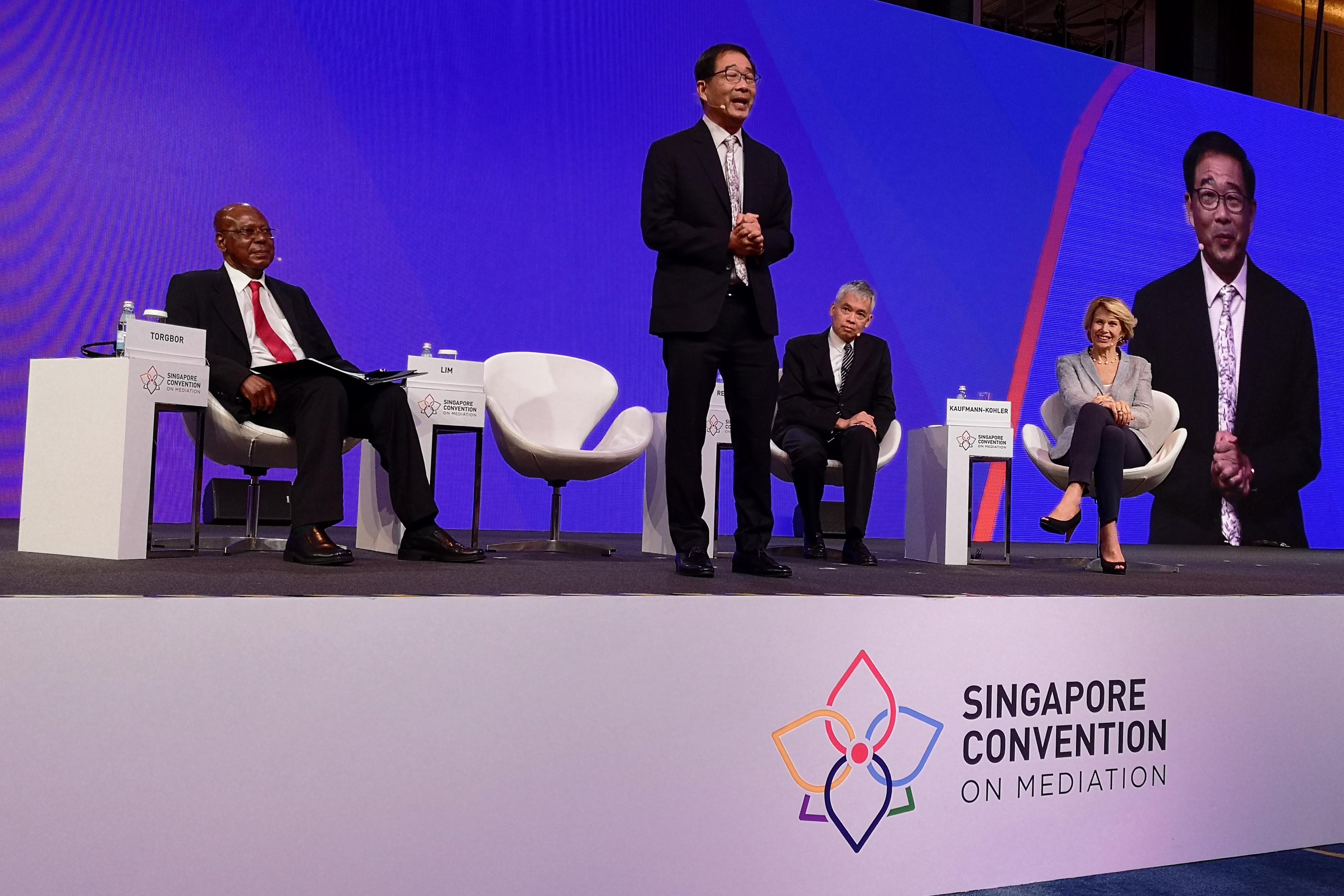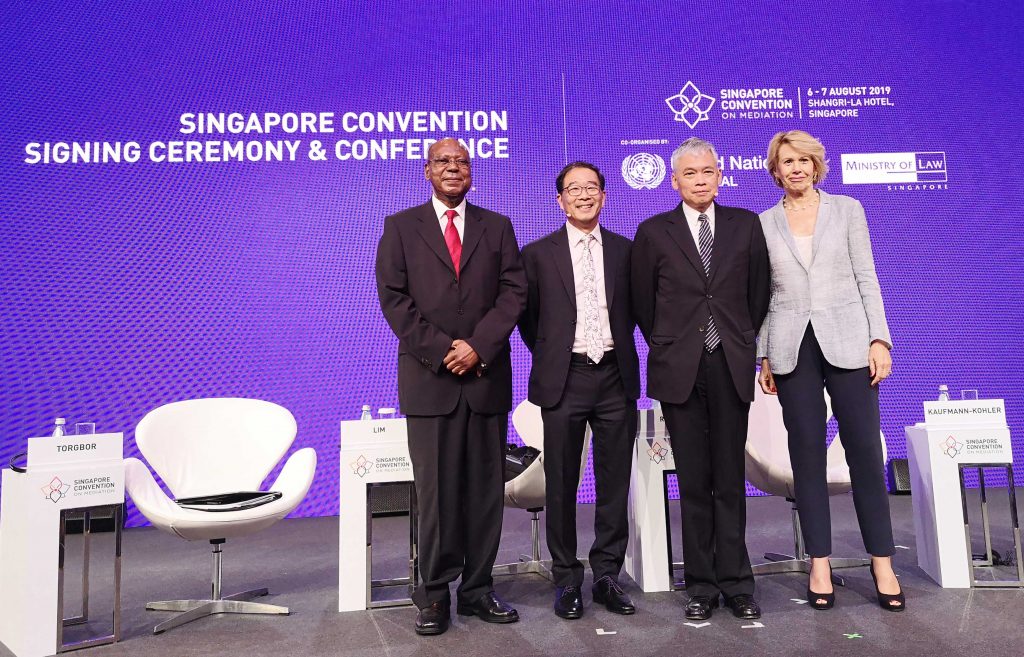The Future of International Dispute Resolution: Challenges and Opportunities for Access to Justice
“It is truly a historic moment,” George said, opening a post-lunch panel session during the Singapore Convention Signing Ceremony and Conference. “Three years ago, would we have thought this would become a reality?”
International arbitral awards are enforceable under the New York Convention; now international commercial mediated settlement agreements can be too, under the newly-minted Singapore Convention on Mediation, which was open for signature yesterday at the Shangri-la Hotel. The Convention has been widely lauded as the missing third piece in international dispute resolution.
The future of international dispute resolution however, remains a mystery and George invited panelists to do a bit of crystal ball-gazing with the audience. “We shall do away with titles and formalities, and try to get this discussion lively and going.”

The Future of International Dispute Resolution: Challenges and Opportunities for Access to Justice moderated by SIMC Chairman George Lim SC. Joining him on the panel are:
The Honourable Justice Anselmo Reyes, international judge at the Singapore International Commercial Court; Prof Gabrielle Kaufmann-Kohler, president of the International Council for Commercial Arbitration;
The Honourable Justice Edward Torgbor, former judge of the High Court of Kenya and visiting academic at the University of Oxford.
Dynamism and change
The future could be one of competition between different modes of dispute resolution and mediation centres, thereby fuelling dynamism in the dispute resolution marketplace, said Anselmo.
“If all mediation centres boosted marketing, costs would be lowered, thus making it a more attractive mode of dispute resolution,” he said.
By extension, this would also give people access to justice, without which they would be subject to crippling litigation fees, Edward agreed.
Hybrid dispute resolution processes
According to a 2018 International Arbitration Survey by White & Case and the Queen Mary University of London, 60 per cent of in-house counsel were in favour of international arbitration together with alternative dispute resolution (ADR) compared to just 32 per cent who preferred international arbitration as a stand-alone mechanism for dispute resolution.
“What is important,” Gabrielle said, “is to not over-regulate mediation into a very formal proceeding like arbitration.” She recognised that cases that are sent for mediation can be informal and flexible.
Anselmo predicted that there will be greater emphasis on hybrid dispute resolution processes as well as the growth of hybrid dispute resolution service providers: Would we see a day where parties appoint someone to advise or direct how a complex dispute should best be resolved?
He also suggested that law schools have focused too much on adversarial means and to that end, educators should encourage students to be solution finders rather than focus on how to win all the time.
Anselmo concluded, “There is a traditional mindset that going to court or arbitration would give you finality. We need to change the minds of users, that the law is not the only way to solve problems. You can turn to non-legal solutions too.”
Technology disruption
While Artificial Intelligence (AI) has threatened to upend the rice bowls of legal professionals, the panel suggested that online dispute resolution still needs a human face. Furthermore, there is not only one type of algorithm but many technology providers out there that each boast of a better, more accurate product. As market competition heats up, bias is bound to happen.
Depending on AI for a resolution is also a matter of ethics: If an AI predicts with an 80 per cent certainty, would it influence the judgments of the judge or arbitrator? What are the safeguards that keep judges and arbitrators neutral and not overly dependent on what the robot says?
AI however, could be a springboard for reality testing for mediation.


